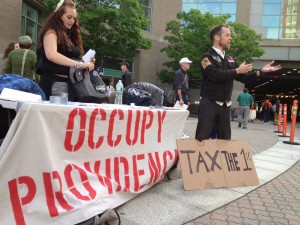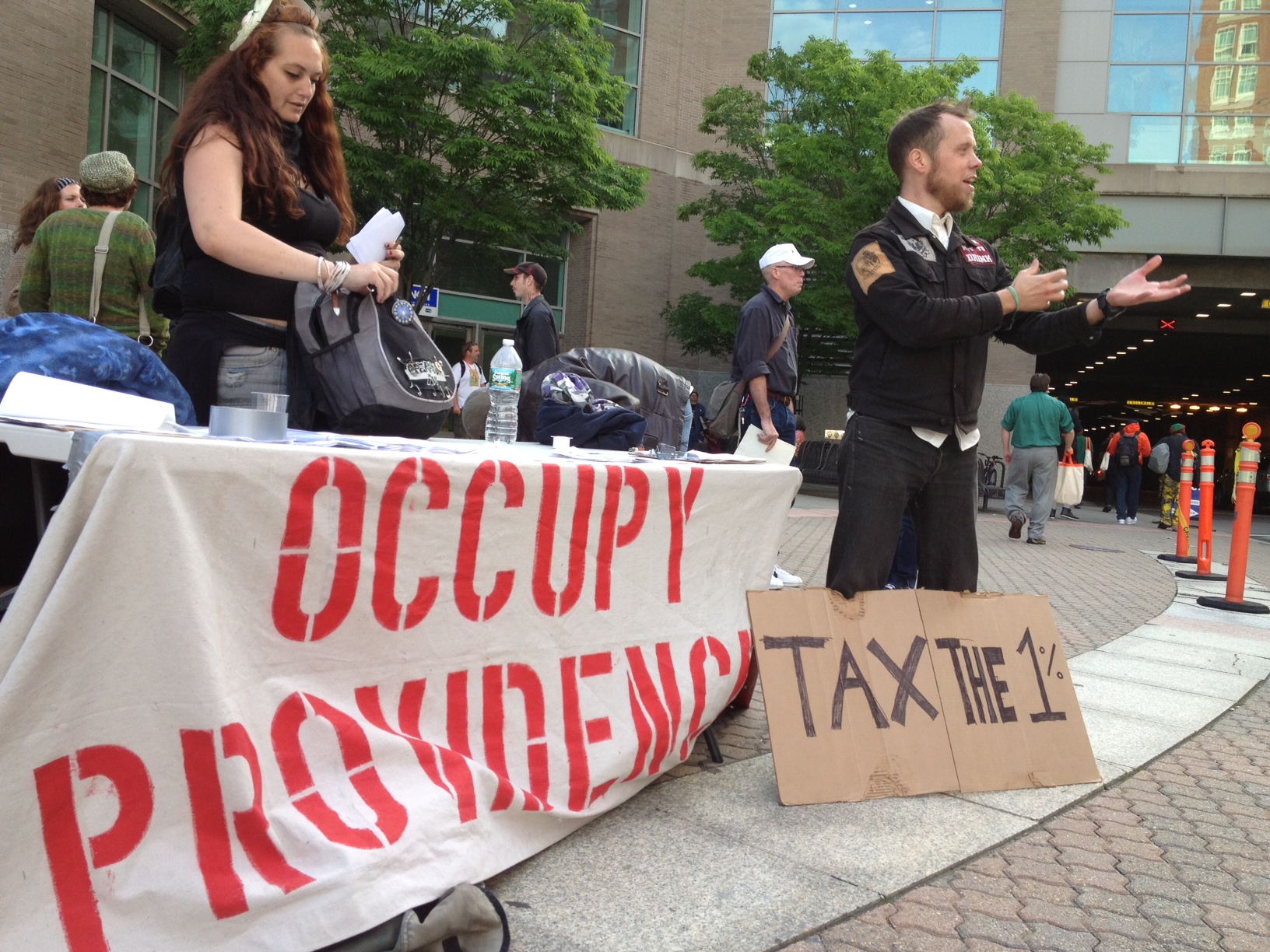 If you’re busy, don’t read much further. Wait until you have a lunch break or are home or something. Because Quinn Norton’s “A Eulogy for #Occupy” is that good.
If you’re busy, don’t read much further. Wait until you have a lunch break or are home or something. Because Quinn Norton’s “A Eulogy for #Occupy” is that good.
Contained within is all the hope, the pain, and the ultimate end of the Occupy Movement as we knew it. You find things like this about hostility to media:
…I witnessed people at Occupy Oakland body-tackle and subdue a screaming, running woman. I took a picture.
Three people came over from the tackle and menaced me, a few inches from my face. I stood and stared at them. I told them they should tell me why they tackled her. They just told me to get out or else, and I waited for them to do something to me. While the woman screamed in the background, a very large man took me aside and said that in the recent arrests some protesters’ psych meds were taken away and not returned. He explained that the woman was one of them. The camp had tried to get the meds back from police, but were ignored. They were doing the best they could to take care of the mentally ill as they lapsed back into their diseases.
On the importance of libraries:
The libraries in every camp were treated as sacred, and they were. They were all open and well-stocked with how-to and educational books, political tracts across the spectrum, novels and literature.
They were true libraries, trusting and trusted places. They were well-lit and quiet, kept as warm as possible through the fall and into winter. You could feel in the air how much the people loved the libraries. In Toronto, when the eviction came, they chained themselves around the library. In DC during the eviction, the librarians accepted being locked in for hours without food or water or bathrooms just to protect their library.
On the failure of the General Assembly:
Because the GA had no way to reject force, over time it fell to force. Proposals won by intimidation; bullies carried the day. What began as a way to let people reform and remake themselves had no mechanism for dealing with them when they didn’t. It had no way to deal with parasites and predators. It became a diseased process, pushing out the weak and quiet it had meant to enfranchise until it finally collapsed when nothing was left but predators trying to rip out each other’s throats.
On the inability to critique itself:
There was no critique in Occupy, no accountability. At first it didn’t matter, but as life grew messy and complicated, its absence became terrible. There wasn’t even a way to conceive of critique, as if the language had no words to describe the movement’s faults to itself. There was at times explicit gagging of Occupy’s media teams by the camp GA, to prevent anything that could be used to damage the movement from reaching the wider media. Self-censorship plagued those who weren’t gagged, because everyone was afraid of retaliation. No one talked about the systemic and growing abuses in the camps, or the increasingly poisonous GAs.
On how the police felt:
The police would quietly tell stories of their own to me. Never attributable, never usable in the normal course of journalism. They were the terrible things that go on in dark places in America, the things that hurt them, that turned their assumptions about other people so dark. They talked of picking up the same junkies again and again, of returning beaten girls to their tormentors, powerless to stop the sickening cycle of violence. One told me he’d covered up a disturbing sex crime. I looked at him questioningly, and he explained that the powerlessness of the victim meant the best he could do was let them escape into the night. We were both distressed, but him with a gun, and me with a pen, were both powerless. On TV, police were supposed to have near-magical technology, able to fix all the problems of society in an hour with room for commercial breaks. The media also represented their culture to them as one of torturers: sadistic men doing whatever to get the job done, whether it was via 24 or the news out of Gitmo. In real life, they often felt frustrated and angry. Many, though never all, had forgotten the role of mercy within power.
On where it goes next:
We don’t read about Occupy a lot in the wider media anymore. The pain from within the camps, and even more, the destruction from outside gutted much of the movement we called Occupy Wall Street. But the spirit is still stirring. In dozens of foreclosure defenses across the country, in the Rolling Jubilee, and in the ongoing story of Occupy Sandy, where many of those who had practiced in the parks managed to outperform the infrastructure of disaster. Organizations like FEMA, the National Guard, and the Red Cross failed to help a lot of people in New York in the wake of the hurricane. In many cases, it was the occupiers who got food and clothes to those who needed them, doctors to victims in the field, who comforted the lost, wounded, and broke, just as they always had.
I’m of two minds about Occupy. On one hand, I’ll never forget feeling that its anarchic bureaucracy was just as alienating as any bureaucracy I’ve seen in the corporate or government worlds. The inability to take criticism is especially hard for me, which is what led me to write things like this about the movement. On the other hand, what stung about that alienation was that I was involved in Occupy Providence’s early moments, however cautiously. The questioning of traditional/established institutions that Occupy engaged it, the critiques of power, the reaching out for each other, and the hope for a better world… I sincerely doubt I could’ve written anything like this without Occupy.
The danger of Occupy is that it may have left many bitter at its failures. The victory of Occupy is that those people are devoted to winning success.

